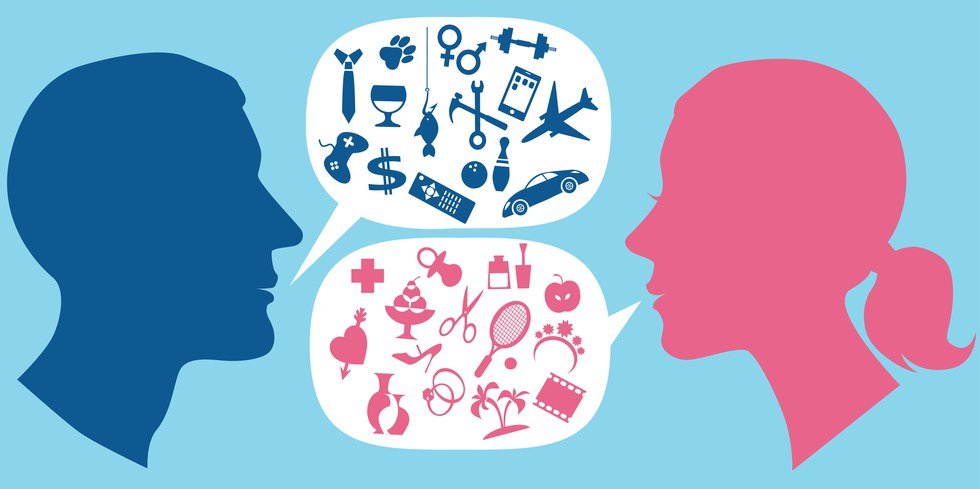Why Do I Attract Narcissists? Common Causes Explained
Finding oneself repeatedly attracted to narcissists can be both perplexing and distressing.
This recurring pattern often leaves individuals questioning their own judgment and self-worth.
Understanding why some people are drawn to narcissistic partners is crucial for breaking this cycle and fostering healthier relationships.
Why do I attract narcissist?
You may attract narcissists due to empathy, low self-esteem, or past trauma. Narcissists exploit these traits, offering initial charm and validation before revealing manipulative behaviors.
Key Takeaways:
Early life experiences and attachment styles influence attraction to narcissists
Empathy and low self-esteem can make individuals vulnerable to narcissistic manipulation
Media and societal expectations often romanticize narcissistic traits
Breaking the cycle requires self-awareness and understanding of psychological patterns.
The Allure of Narcissists
Narcissists are often charming, confident, and seemingly perfect at first glance.
Their magnetic personalities can be incredibly alluring, making it difficult to see the red flags early on.
However, the initial attraction can quickly turn into a toxic relationship dynamic, leaving one feeling manipulated and emotionally drained.
Recognizing Psychological Patterns
Recognizing the psychological patterns that lead to attracting narcissistic partners is the first step toward change.
It's not uncommon for individuals with certain personality traits or past experiences to be more susceptible to the allure of a narcissist.
Traits and Experiences
For instance, people who are empathetic, and nurturing, or have a history of codependent relationships may find themselves repeatedly drawn to narcissists.
Understanding these dynamics can empower individuals to make more informed choices in their relationships.
Strategies for Change
By identifying the traits that make one a "narcissist magnet," it becomes possible to develop strategies to avoid falling into the same traps.
This awareness is not about blaming oneself but about gaining insight into one's own behavior and making conscious efforts to change.
Delving Deeper
For those who find themselves asking, "Why do I attract narcissists?" it's essential to delve deeper into the underlying reasons.
This exploration can lead to personal growth and the ability to form healthier, more fulfilling relationships.
Breaking the Cycle
By addressing these issues head-on, one can break free from the cycle of attracting toxic partners and move towards a more positive and balanced love life.
A Journey of Self-Discovery
Understanding why you are attracted to narcissists is a journey of self-discovery and empowerment. It involves examining past relationships, recognizing patterns, and making conscious changes to avoid repeating the same mistakes.
This post will provide a comprehensive look into the reasons behind this attraction, exploring the concept of narcissistic supply and how it relates to our deeper wounds.
We'll discuss practical advice for those looking to break free from the cycle, emphasizing the importance of self-care and cultivating self-love as key steps to stop attracting narcissists.
Keep in mind you need to understand some basic differences between self-love vs narcissism to know the psychology and some other factors of a narcissist.
Psychological Factors
Early Life Experiences
Roots of Attraction
The roots of why some individuals repeatedly attract narcissistic partners often lie in early life experiences.
Childhood Attachments
Childhood attachments significantly shape future loving relationships.
When a child grows up with unmet emotional needs, they may develop attachment styles that make them more susceptible to narcissistic partners.
Impact of Attachment Styles
Secure attachments in early childhood provide a foundation for healthy adult relationships.
Insecure attachments can lead to a pattern of seeking validation and approval from others, often resulting in attracting narcissists.
Effects of Neglect
Children who experience neglect or inconsistent caregiving may grow up feeling unworthy of love.
This feeling can make them more likely to tolerate manipulative behaviors from narcissists.
Influence of Parental Relationships
Parental relationships also influence one's attraction to narcissistic partners.
If a parent exhibits narcissistic traits, a child may normalize this behavior and seek similar partners in adulthood.
Subconscious Pull
The familiarity of these dynamics can create a subconscious pull towards narcissists.
This pull often results from attempting to recreate and resolve unresolved issues from the past.
Lifelong Quest for Validation
Unmet emotional needs during childhood can lead to a lifelong quest for validation and approval.
Narcissists are skilled at providing this validation initially, making them highly attractive to those with unmet emotional needs.
Initial Charm and Attention
The initial charm and attention from a narcissist can feel like a balm to old inner wounds.
This dynamic draws individuals into a cycle of seeking approval from someone who ultimately cannot provide genuine emotional support.
Behavioral Patterns and Narcissistic Attraction
Attraction to Familiarity
Behavioral patterns developed over time can contribute to attracting narcissistic partners.
One common pattern is the attraction to familiarity.
People often gravitate toward what they know, even if it is unhealthy.
If someone has grown up in a dysfunctional environment, they may unconsciously seek out similar dynamics in their adult relationships.
This attraction to familiarity can make it difficult to break free from the cycle of dating narcissists.
Desire to Heal Old Wounds
The desire to heal old wounds is another powerful motivator.
Individuals who have experienced emotional pain in the past may be drawn to narcissists in an attempt to "fix" the relationship and heal their own wounds.
This desire to heal can create a strong bond with a narcissist, as the individual becomes invested in trying to change or save their partner.
Need for Approval and Validation
The need for approval and validation is a significant factor in attracting narcissistic partners.
Narcissists are skilled at providing validation and making their partners feel special, at least initially.
This can be incredibly appealing to someone who craves approval.
However, this validation is often short-lived.
This leads to a cycle of seeking more approval from a partner who is ultimately incapable of providing it consistently.
Cognitive Biases and Narcissistic Attraction
Cognitive Dissonance
Cognitive biases play a crucial role in why some individuals attract narcissists.
Cognitive dissonance occurs when there is a conflict between one's beliefs and behaviors.
In a relationship with a narcissist, an individual may recognize the toxic behavior but continue to stay in the relationship.
This dissonance can lead to rationalizing or justifying the narcissist's actions.
As a result, it becomes difficult to break free from the relationship.
Confirmation Bias
Confirmation bias is another cognitive bias that perpetuates the cycle of attracting narcissistic partners.
This bias leads individuals to seek out information that confirms their existing beliefs while ignoring evidence to the contrary.
In a relationship with a narcissist, this bias can cause someone to focus on their partner's positive aspects.
They may downplay or ignore negative behaviors.
This selective perception reinforces the attraction to the narcissist and makes it challenging to see the relationship clearly.
Over-Idealization
Over-idealization of partners is a common cognitive bias that can lead to attracting narcissists.
When someone idealizes their partner, they see them as perfect and ignore their flaws.
Narcissists often present themselves as ideal partners initially.
This can easily lead someone to fall into the trap of over-idealization.
The idealization blinds an individual to the narcissist's true self and prolongs the emotional pain.
Breaking the Cycle
Understanding these psychological factors is essential for breaking the cycle of attracting narcissistic partners.
By recognizing the impact of early life experiences, behavioral patterns, and cognitive biases, individuals can begin to make conscious changes.
This awareness is the first step toward forming healthier, more fulfilling relationships and avoiding the pitfalls of narcissistic attraction.
Social and Cultural Influences
Media Portrayals and Narcissistic Attraction
Romanticizing Toxic Dynamics
Media portrayals significantly influence our perceptions of relationships.
Movies, television shows, and literature often romanticize toxic dynamics and glorify narcissistic traits.
These portrayals can create a skewed perception of what a healthy relationship should look like.
When relationships with narcissistic partners are depicted as passionate and intense, it can distort reality.
Glorifying Narcissistic Traits
The glorification of narcissistic traits in popular culture further complicates the issue.
Characters who exhibit confidence, charm, and entitlement are often seen as desirable and successful.
This portrayal can create a subconscious attraction to these traits.
It becomes difficult to recognize the underlying toxicity when narcissistic behavior is normalized and celebrated.
Normalizing Toxic Behavior
When narcissistic behavior including narcissistic abuse is normalized, it becomes easier to fall into the trap of attracting narcissistic partners.
The portrayal of "bad boys" or "femme fatales" as exciting and alluring can lead individuals to seek out similar partners in real life.
This influence can perpetuate narcissistic relationship patterns, as most narcissistic people are drawn to the excitement and drama often associated with narcissistic partners.
Understanding Media Influence
Understanding the psychology behind narcissist attraction requires a critical examination of how media shapes our expectations and desires.
Recognizing the impact of media portrayals is essential for forming healthier relationship choices and avoiding the pitfalls of narcissistic attraction.
Societal Expectations and Narcissistic Attraction
Pressure to Conform
Societal expectations around relationships and love play a significant role in why narcissists are drawn to certain individuals.
There is often immense pressure to conform to specific relationship ideals.
These ideals include finding a partner who is successful, attractive, and charismatic.
Such societal norms can make narcissistic traits seem desirable.
Narcissists often exhibit qualities that are celebrated and sought after.
Norms Around Love and Relationships
Society frequently emphasizes the importance of being in a relationship and finding "the one."
This can lead individuals to overlook red flags in their pursuit of love.
The notion that love should be all-consuming and intense can make the highs and lows of narcissistic relationships seem normal.
This romanticization of tumultuous relationships complicates recognizing and breaking free from narcissistic dating patterns.
Gender and Power Dynamics
Gender and power dynamics also influence the attraction to narcissistic partners.
Traditional gender roles often place men in positions of power and women in more submissive roles.
This imbalance can be exploited by narcissists, making it easier for them to manipulate and control their partners.
Such dynamics perpetuate toxic relationship patterns.
Understanding Societal Influence
Understanding the influence of societal expectations on relationship dynamics is essential.
Recognizing how these expectations contribute to attracting narcissists helps in addressing and changing these patterns.
Awareness of societal pressures can guide individuals toward healthier relationship choices.
Peer Influences
Peer influences are a significant factor in attracting narcissistic partners.
The impact of social circles on relationship choices is substantial.
Friends and family often provide subtle encouragement of certain relationship dynamics.
This influence can come through their own behavior or the advice they give.
If one's social circle normalizes or celebrates narcissistic traits, it’s hard to see these behaviors as problematic.
Personal Traits and Dispositions
Empathy and Sensitivity
Empathy and sensitivity are often viewed as positive traits. However, they can also make individuals more vulnerable to attracting narcissistic partners.
People with high levels of empathy are naturally attuned to the emotions and needs of others.
This heightened sensitivity can lead them to prioritize their partner's well-being, sometimes at the expense of their own needs.
Narcissists are skilled at exploiting this trait.
They use it to manipulate and control their empathetic partners.
Self-Esteem Issues
Self-esteem issues play a significant role in attracting narcissistic partners.
Individuals with low self-esteem often seek external validation to feel good about themselves.
Narcissists are initially adept at providing this validation.
They use flattery and charm to make their partners feel special and valued. However, this validation is usually short-lived.
This leads to a cycle of seeking more approval from a partner who cannot provide it consistently.
Emotional Resilience
Emotional Resilience and Narcissistic Partners
Emotional resilience is the ability to cope with and recover from emotional challenges.
While resilience is generally seen as a positive trait, it can also lead individuals to tolerate the emotional ups and downs of a relationship with a narcissist.
The ability to endure emotional turmoil can result in staying in toxic relationships, hoping for change and improvement in the partner.
This resilience in the face of relationship challenges can create a dynamic where the empathetic partner continually tries to "fix" the narcissist.
The desire to heal and improve the relationship can lead to a cycle of hope and disappointment, as the narcissist's behavior remains unchanged.
Frequently Asked Questions:
1: Why do some people repeatedly attract narcissists?
Some people attract narcissists due to personality traits like empathy, nurturing tendencies, or a history of codependency.
Narcissists exploit these traits by providing initial validation and attention, which can make it challenging to spot red flags early on.
2: How does emotional resilience impact attraction to narcissists?
Emotional resilience can make individuals more likely to tolerate toxic behaviors and stay in unhealthy relationships, hoping for change and improvement.
This resilience often results in a cycle of trying to "fix" the narcissist, leading to ongoing emotional distress and manipulation.
3: What role do psychological patterns play in this attraction?
Psychological patterns, such as a desire to heal old wounds or seek validation, can contribute to attracting narcissistic partners.
These patterns often involve a strong bond with the narcissist and a tendency to overlook negative behaviors, making it difficult to break free from toxic relationship cycles.
Conclusion
Repeatedly attracting narcissists can be perplexing and distressing.
This pattern often leads individuals to question their judgment and self-worth.
Understanding why some people are drawn to narcissistic partners is crucial for breaking this cycle.
Key factors include personality traits like empathy and past experiences with codependency.
Narcissists often appear charming and perfect initially, making it hard to spot red flags.





